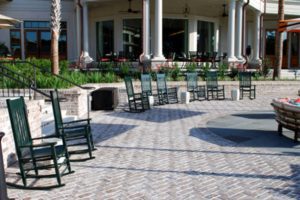Great Alternatives to Marble
Marble slabs are the rage right now from rich veining to striking swirls. This trend can be seen on countertops, islands, backsplashes and bathrooms. 
Marble can be a little hard to work with and use. It is porous so it will stain easily if not resealed on a regular basis. Since it stains easily, it cannot be used outdoors.
“If a client really wants the look of white marble in the kitchen, but they entertain a lot or are red-wine drinkers, it’s my job to introduce them to a more appropriate choice,” says Chris Jovanelly, lead interior designer at Est Est Interior Design, an award-winning luxury design firm in Scottsdale, Arizona. “In cases like theirs, white marble would stain or get dull, as well as require a lot of care. And who wants to tiptoe around their kitchen island?”
Professionals and homeowners are now choosing eco-friendly options over marble. Quartz is a popular option as it is engineered stone. It is nonporous and doesn’t hold bacteria. The only downside is that it is vulnerable to heat damage.
Porcelain is the most environmentally friendly marble alternative, partly because it’s made from recycled materials. “Porcelain requires the least upkeep. Marble needs sealing, which leaves behind a strong chemical smell in your home,” Jovanelly says. “Porcelain tile is like a photograph of a beautiful marble slab, offering the look without the maintenance.”
If you must have the marble look, go for Dekton by Cosentino. “There is no surfacing material I can think of that is more versatile,” says Jovanelly. “It can be submerged in water in a swimming pool, but it can also be used as bathroom flooring, in outdoor paneling and walkways, and on countertops and backsplashes. Dekton is my number-one specification in every outdoor kitchen I work on, and I use it in almost every single one of my projects.”
